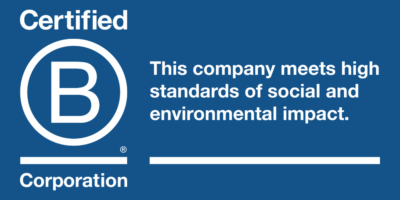Tax-Efficient Investment Strategies for the 2025 Landscape
In today’s complex financial environment, investing wisely isn’t just about selecting the right assets—it’s also about understanding how taxation affects your returns. As we navigate 2025, several key tax-efficient considerations and strategies can help investors maximize their after-tax returns while staying compliant with current regulations.
How Tax Efficiency Impacts Your Investment Returns in 2025
Tax efficiency refers to the practice of minimizing the tax impact on your investment returns. Before diving into specific strategies, it’s important to understand common types of taxes on investments and the timing of when taxes are owed.:
- Ordinary income tax rates apply to interest income, non-qualified dividends, and short-term capital gains
- Qualified dividend and long-term capital gains rates are typically lower than ordinary income rates
- Tax-deferred or tax-exempt growth available through certain account types
Strategic Asset Location: Placing Investments in Tax-Optimal Accounts
One of the most powerful yet overlooked strategies is proper asset location—placing investments in the most tax-advantageous accounts:
- Tax-advantaged accounts (401(k)s, IRAs, etc.) are ideal for:
- Investments that generate ordinary income (bonds, REITs)
- Actively managed funds with high turnover
- Assets you plan to trade frequently
- Taxable brokerage accounts are better suited for:
- Long-term stock holdings
- Tax-efficient index funds
- Municipal bonds (which are already tax-advantaged)
Tax-Loss Harvesting: Smart Strategies to Offset Gains in 2025
Tax-loss harvesting—selling investments at a loss to offset capital gains—remains a valuable strategy in 2025. Consider these approaches:
- Review your portfolio quarterly for harvesting opportunities
- Be strategic about which lots you sell when partially liquidating positions
- Maintain exposure to similar (but not identical) investments to avoid wash sale rules
- Ask your advisor about their tax-loss harvesting solutions for your portfolio
Roth Conversion Tactics for Tax-Efficient Wealth Building
With potential tax changes always on the horizon, Roth conversion strategies deserve special attention:
- Analyze your current and expected future tax brackets
- Consider converting traditional IRA assets to Roth during lower-income years
- Implement partial conversions to manage tax liability
- Be mindful of the five-year rule for penalty-free withdrawals
ETFs vs. Mutual Funds: Choosing Tax-Efficient Investment Vehicles
Exchange-traded funds (ETFs) continue to offer tax advantages over traditional mutual funds due to their structure:
- ETFs typically generate fewer capital gains distributions
- The creation/redemption process allows ETFs to minimize realized gains
- Index-based ETFs generally have lower turnover than actively managed funds
Qualified Business Income (QBI) Deduction Strategies for Business Owners
Business owners and those with pass-through income should consider how investment decisions affect their Qualified Business Income (QBI) deduction:
- Evaluate the balance between business and investment income
- Consider timing investment income realization
- Explore retirement plan contributions to reduce taxable income
Tax-Optimized Retirement Withdrawal Strategies for 2025
Donating appreciated securities rather than cash provides a double tax benefit:
- Receive a deduction for the full fair market value (if held long-term)
- Avoid paying capital gains tax on the appreciation
- Consider donor-advised funds for more strategic timing of contributions
Tax-Efficient Withdrawal Strategies in Retirement
For retirees or those approaching retirement, the order of withdrawals can significantly impact tax liability:
- Generally, draw from taxable accounts first, then tax-deferred accounts, and tax-free accounts last
- Adjust this sequence based on your specific tax situation
- Consider tax bracket management—filling lower brackets while avoiding jumps to higher ones
Municipal Bonds and Tax-Exempt Income
Municipal bonds continue to play an important role in tax-efficient portfolios:
- Interest is generally exempt from federal taxes
- In-state municipal bonds may also be exempt from state and local taxes
- Compare after-tax yields to determine if municipal bonds make sense for your tax bracket
International Tax Considerations
For investors with international holdings:
- Utilize foreign tax credits to avoid double taxation
- Be aware of tax treaties between countries
- Consider the tax implications of foreign dividend withholding
Conclusion
As tax laws evolve and markets change, maintaining tax efficiency requires vigilance and adaptation. Working with qualified tax and investment professionals can help ensure your strategy remains optimized for the current landscape while supporting your long-term financial goals.
Remember that while tax efficiency is important, investment decisions should never be driven solely by tax considerations. The fundamental quality of investments and alignment with your overall financial plan should remain the primary factors in your decision-making process.
As fiduciaries committed to aligning your investments with both your financial goals and values, our experienced professionals at Riverwater Partners are here help you implement these tax-efficient investment strategies tailored to your specific situation.









